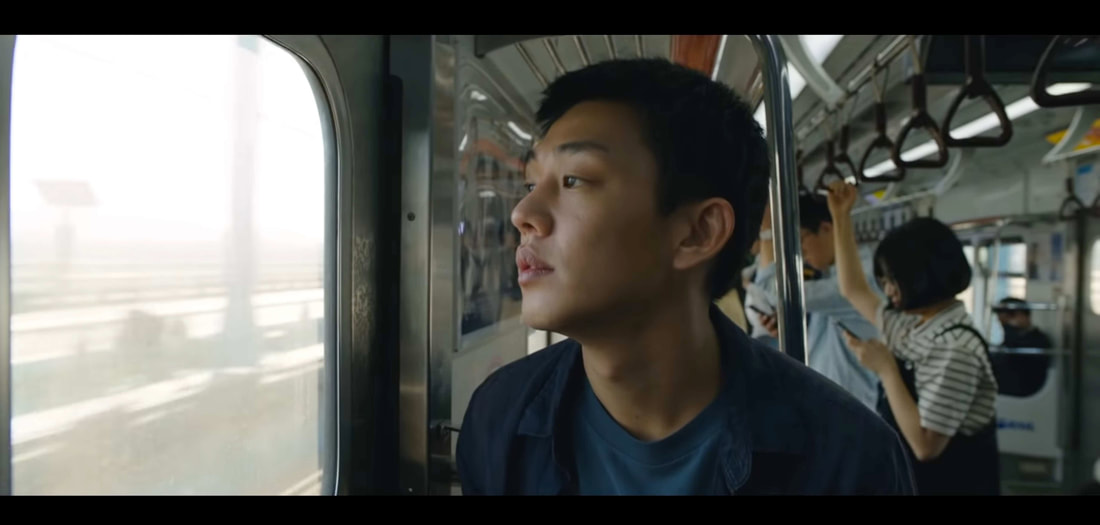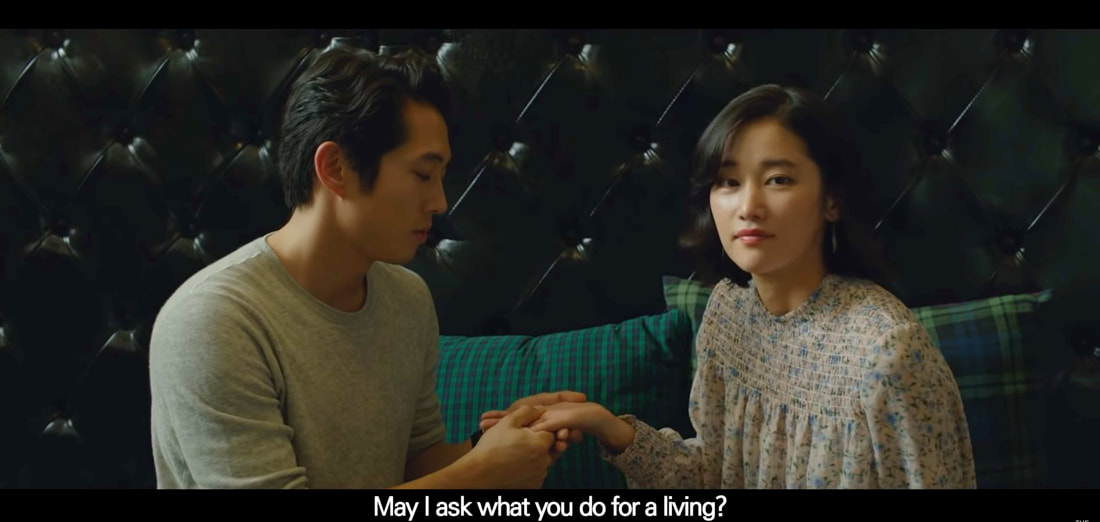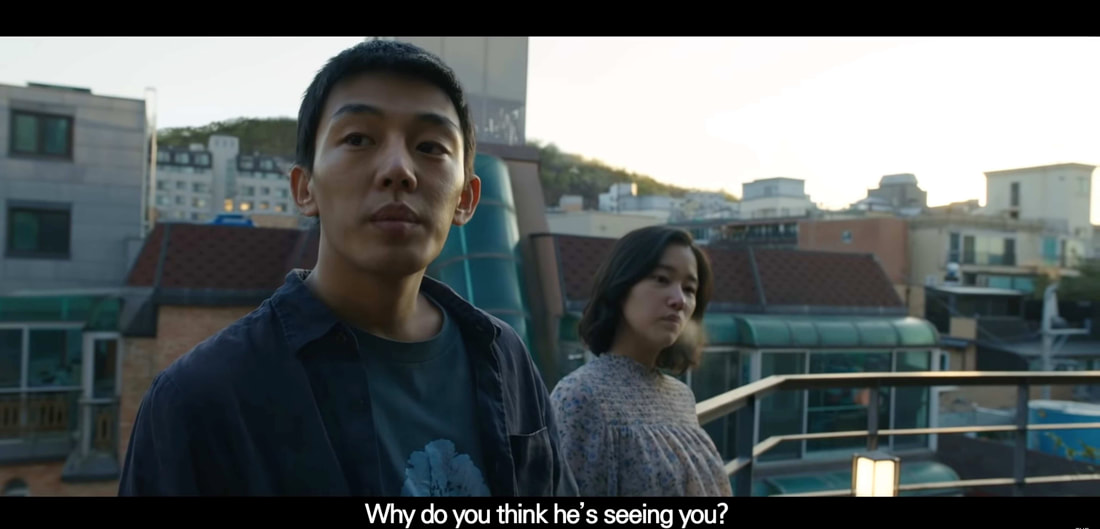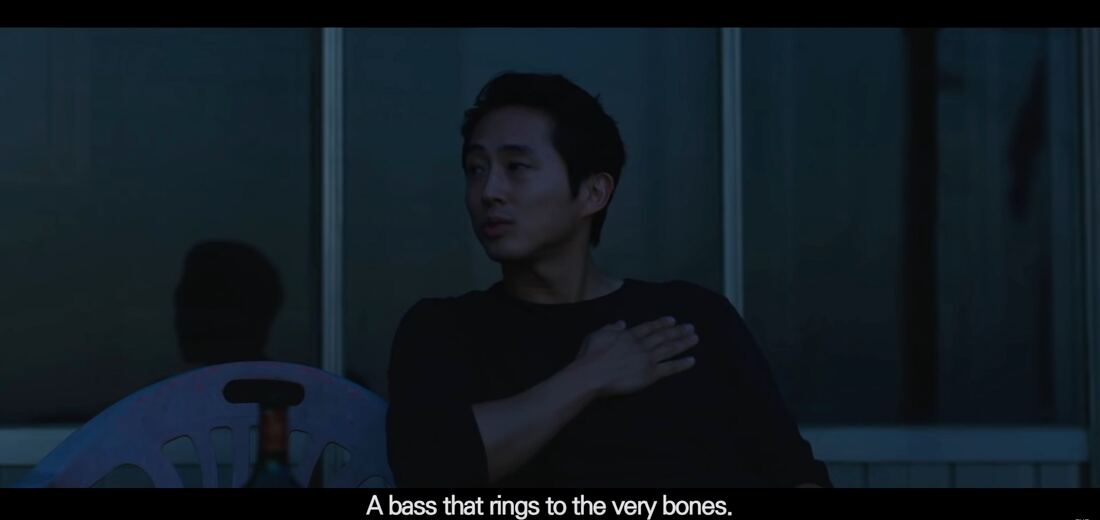|
"I feel a bass, right here. A bass that rings to the very bones." dir. Lee Chang-Dong. Synopsis: Jong-Su meets a woman who may or may not have known him from long ago, and whose friend Ben may not quite be what he claims to be. Cannes Trailer. 148m. 2.39:1. --- What is the significance of living? Anyone who saw this Cannes entry and also saw the film it lost the Palme d’Or to– Hirokazu Kore-eda’s Shoplifters– should by now agree that a mistake was made in the handing out of cinema’s most respected trophy. While the excellent Shoplifters is no Green Book, there’s no denying that one of these films uses the language of camera movement, mise-en-scene, color, light, soundscape, editing and pace– in short, the language of cinema– to communicate to us viewers, while the other uses… basically none of these, sticking with acting and writing and not much more. Acting and writing derive more obviously from other art forms, whereas the tenets of cinematic form take better advantage of the medium’s potency. With all due respect to Kore-eda, a director whose purity of perspective and lack of irony I genuinely love, the Shoplifters approach is closer to watching (really good) theatre. Burning is a different matter entirely. It creates a mood that cannot be replicated in another format, because it uses tools specific to cinema. Burning does more than utilize the tools of Pure Cinema though. Director Lee (actually pronounced “Ee” in Korean) draws us in so much by leaving a lot out– we ponder all the further, studying every movement and moment for clues... to what, we are not even sure. The less you know going into this one, the better. Suffice it to say that it’s worth setting aside 148 minutes for something pretty spellbinding. I haven’t leaned that far forward while watching a picture in years. The explorations of the movie reach beyond the already compelling question of what the relationships are between these three people, and far beyond the already hugely compelling question mark of whether or not one of them is a criminal. A young man meets a woman he doesn’t recognize, but who remembers him well from childhood; she leaves and reappears with a man of mysterious origin who seems in every way his opposite. One is unable to experience human emotion; another watches everything but remains inscrutable; the third is hungry for a plane of understanding the other two can’t seem to fathom. And yet despite all these unanswered secrets, the climactic act of the film feels violently necessary, even appropriate, on levels we cannot articulate. Just watch it. And don’t read further unless you’ve seen the picture! SPOILER TALK: On Withholding Haemi’s comments about mime, and her search for something that transcends the entirety of the spectrum upon which either end of Jongsu and Ben sit, gain new meaning in light of her subsequent absence. Even an aside like “cats have a hard time changing their environment” becomes evocative in retrospect. When Haemi dances to the twilight and Miles Davis's score to Elevator to the Gallows, she seems to be ascending to a higher plane that is hers alone to touch. When Ben begins talking about burning down greenhouses, we are intitally shocked by the utterly unexpected nature of his comments, almost amused, but upon later guessing what he was referring to, chilled by his nonchalant attitude, just like those yawns of his that in retrospect strike one as disturbing. Ben seems to represent so many different things that are fundamentally wrong, and Jongsu’s violent act at the end seems borne of a deep-seated need to forcibly reject all of them: Ben's lack of human emotion, the social inequality he represents, his ease of lifestyle during a time when others struggle to get by, the very concept of uselessness, and his apathetic and potentially murderous blankness, his amorality. I appreciate the film withholding certain details, and notice it plays differently on subsequent viewings: we now know, for example, that the nighttime phone calls are his mother. But certain moments– Jongsu sneaking up on Ben by the water reservoir, with lots of buildup but which we never learn the consequence of; the fact that other women in the film wear a pink wristwatch, casting doubt on Ben’s unproven guilt; the suspicion that we may be seeing Jongsu’s writerly imagination, given that the scene of him at his typewriter sits adjacent to the only scene in the movie he’s not in; Jongsu’s uncharacteristic confidence in telling his mother he’ll “handle it,” whatever the problem they’re talking about is; the unseen cat, and so many more– these, as ever, draw us in even after the film is over. Ephemeralities I think the question of whether or not Ben is really up to something sinister is less a question than the strongly felt truth that there is something wrong about him, something criminal in spirit, that Jongsu can sense. Jongsu also seems often to be on another plane, one that the worldly Ben cannot understand. I find it fascinating and very nearly endearing that Ben is reading Faulkner, sincerely trying to understand Jongsu, because Ben feels he can understand everyone else but somehow not Jongsu; and that Ben seems to feel genuinely upstaged by Haemi’s comment that Jongsu is her closest companion. Ben has achieved all that mainstream society would call ideal, and yet, when faced with Jongsu, is faced with something completely outside his capacity to understand. Says actor Steven Yeun, who plays Ben: "[Lee and I] didn’t try to understand Ben from a material, physical level, but from a deep, philosophical one.” I like wondering about whether or not Jongsu, who often seems “slow” or dense, is in fact quite a bit more perceptive and in tune to something higher or larger than he lets on. The fact that this is never confirmed as such makes me lean in even more. There seem to be scenes which exist for the purpose of having us ponder the question: him looking up at the ceiling during his father’s courtroom arraignment; him walking out during the group job interview. Viewers of Lee’s films will know this is a recurring theme– a character who possesses a socially undesirable trait, which elevates their perspective in ways invisible to those around them. On Language There is also the question of the phoneticization of the title. There is a Korean word for “burning,” but this title uses neither it nor the Japanese one from the Murakami short, but rather Korean characters phonetically spelling out the english word: “baw-ning.” One other word in this film also receives this treatment, in arguably the film's most important dialogue exchange: “the Great Hunger.” Haemi even points out that what she’s describing are not the regular words for appetite, starvation, yearning, or craving, but something a concept beyond the definitions these words contain. Same with the title. Speaking further of language, Korean speakers will note how jarringly quickly Haemi switches to the informal tense with Jongsu, as well as the absurdity of Ben continuing to use the polite formal with someone of infinitely inferior social status during all of their interactions. He comes off as even more condescending than if he were using the informal or “rude” suffixes with this new stranger. Many films remain elusive for much of their runtime only to let all the wind out of their sales by explaining their secrets at the end (oh, Midnight Special). This one holds its cards close for its entire length, begging us to continue mulling things over long afterwards. This pervading sense of unknowing, coupled with the Korean language, which I as an amateur speaker I enjoy parsing and trying to keep up with, caused me to experience a sense of hyper-observation and attentiveness to detail at a degree beyond how I watch most films. Multiple viewings, incredibly, only sustain the pervasive mood of ambiguity. Lee’s knowing just what to show and not show, in all his pictures, I think, must strike a Korean viewer as particularly unique, given the new Korean cinema’s tendency to be too extreme, too transgressive (and for me often unwatchable), simply for the sake of being so. Isn’t less always more?
0 Comments
Leave a Reply. |
Nathan
Archives
July 2024
Categories |




 RSS Feed
RSS Feed
